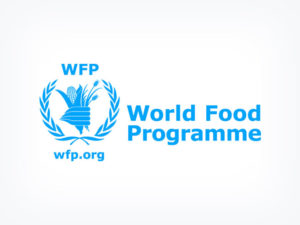UAE Contributes To WFP Saving Lives In Syria Conflict
The United Nations World Food Programme (WFP) has welcomed a generous contribution of US$31 million from the Government of the United Arab Emirates towards its emergency humanitarian operations in Syria.
The donation was announced in Abu Dhabi by the Ministry of International Cooperation and Development in the presence of the Director of WFP’s UAE office and WFP’s Regional Emergency Coordinator for Syria together with senior UN officials.
“We are very grateful for this extremely timely contribution from the UAE Government. For WFP, this funding comes at a critical time, as we work to meet the ongoing food assistance needs of nearly 7 million Syrians who have been worn down by the three year conflict,” said WFP Executive Director Ertharin Cousin.
Last month, a lack of funding forced WFP to reduce by 20 percent the March food basket provided to vulnerable families inside Syria. As a result, families did not receive sufficient nutrients to stay healthy (1,530 kilocalories, compared with the planned 1,920 kilocalories.)
The UAE donation will allow WFP to continue to provide food assistance to vulnerable people impacted by the conflict. “This significant investment demonstrates the generosity of the UAE and its people as they lead by example, shouldering the burden of a crisis that has gone beyond the borders of Syria. Your support also reflects humanitarian solidarity with the countries hosting refugees. You are saving lives of innocent children, vulnerable men and women.”
WFP has appealed for US$2 billion to feed around 7 million Syrians displaced in their country or who have fled to neighbouring countries.
“We are grateful to the generosity of our donors, whose contributions have enabled us to save lives, but our emergency operation is running hand-to-mouth and our funding has now reached dangerous levels,” said Muhannad Hadi, WFP’s Emergency Coordinator for Syria from Abu Dhabi during the announcement press conference.
Funding is also essential for WFP operations in neighbouring countries, where over 1.5 million Syrian refugees depend on the UN food agency’s food vouchers. WFP often uses vouchers to provide assistance where markets are functioning but people cannot afford to buy food. Vouchers provide people with more choice; they can buy fresh foods such as fruit, vegetables and milk that are not normally included in conventional food rations.
In 2013, through the voucher programme, WFP injected over US$400 million into the local economies of neighbouring countries. WFP plans to expand its voucher assistance to reach over 2.9 million Syrian refugees this year.
For more information, visit ihc.ae







